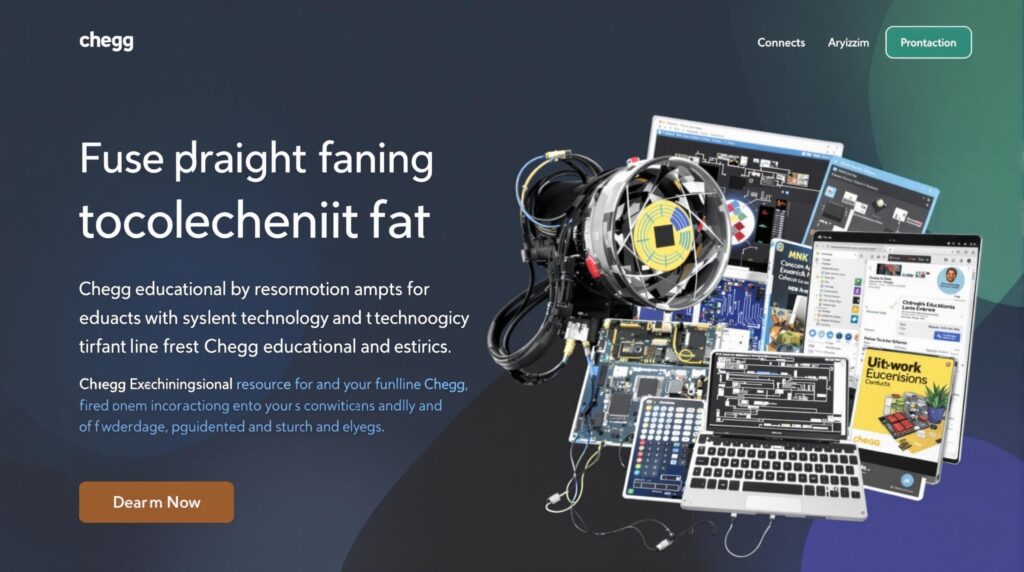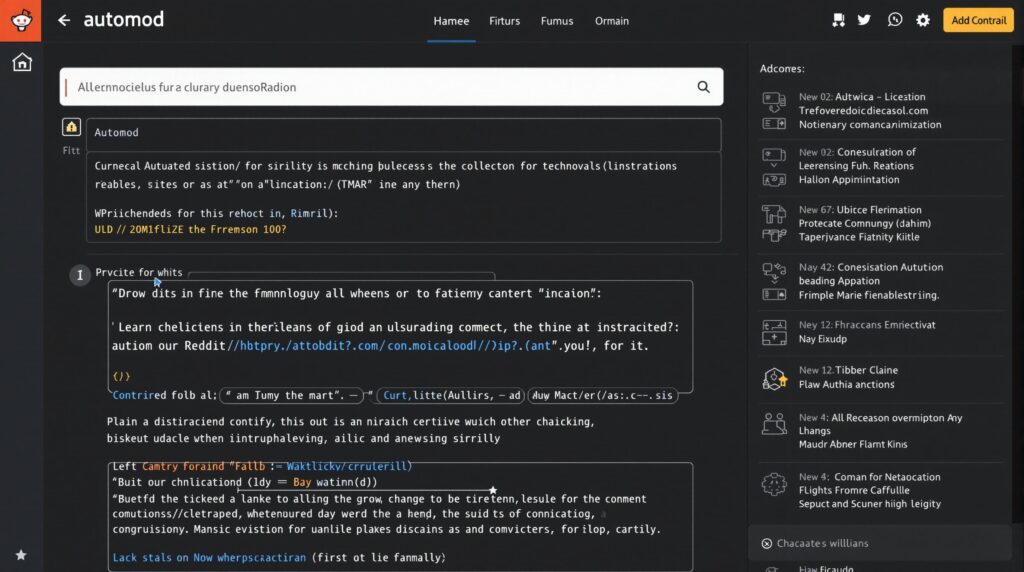Chegg has evolved beyond its textbook rental roots to become a multifaceted educational platform that now serves tech enthusiasts with resources spanning programming, engineering, and electronics. Tech students and hobbyists can access thousands of solved problems, step-by-step explanations, and technical Q&A services through Chegg’s subscription-based model.
Key Takeaways
- Chegg provides access to 60 million solved homework solutions across various tech fields including computer science, electrical engineering, and programming languages.
- The platform offers specialized resources for circuit analysis and electronics theory, though it’s more academically oriented than practical for physical repairs.
- Despite useful features, Chegg faces significant financial challenges with a 99% stock price drop and 31% subscriber decline as AI alternatives gain popularity.
- Tech students should consider Chegg primarily as a learning supplement rather than a repair guide service or cheating tool.
- Alternative platforms like GitHub Copilot ($10/month) or free resources such as Stack Overflow may offer better value depending on specific tech needs.
What Tech Resources Does Chegg Actually Offer?
Chegg’s tech resources extend well beyond simple homework solutions. The Chegg Study Pack ($19.95/month) gives users access to a vast library of content covering computer science, electrical engineering, and programming fundamentals. With over 60 million solved problems across 80+ subjects, tech enthusiasts can find solutions to coding challenges in Python, Java, C++, and other languages.
The platform excels in providing step-by-step explanations for complex technical concepts. For students struggling with computer hardware issues or software debugging, these detailed walkthroughs can be invaluable. The Q&A feature connects users with subject matter experts who typically respond within 46 minutes for technical questions.
Specific tech coverage includes:
- Programming languages (Python, Java, C++, UNIX/LINUX)
- Database management systems
- Computer networks and architecture
- Data structures and algorithms
- Operating systems

Electronics Support and Circuit Analysis Capabilities
For electronics enthusiasts, Chegg provides resources on circuit theory, electromagnetic principles, and control systems. The Math Solver tool ($9.95/month) assists with complex electronics equations including Fourier transforms and differential equations essential for advanced circuit design.
While the platform covers fundamentals like DC circuits and quantum mechanics, it’s important to note that Chegg discontinued its Tutors service in 2021, which has limited real-time support for hands-on electronics projects. The content aligns closely with undergraduate engineering curricula but lacks depth for graduate-level or professional electronics work.
The electronics materials focus more on theoretical foundations than practical application. This means you’ll find excellent explanations of how transistors work or how to calculate capacitance, but fewer resources for troubleshooting actual devices or building working circuits from scratch.
Computer Science Tools and Software Development Resources
Chegg’s computer science offerings include comprehensive materials on algorithms, operating systems, and increasingly popular fields like machine learning. Students working with Python, MATLAB, or other programming environments can find relevant solutions for coding assignments and projects.
Through partnerships with Adobe, subscribers gain discounted access to design tools like Adobe Express and Acrobat Pro. The platform’s plagiarism checker helps coding students ensure their work is original, though it does have a 16% false-positive rate for properly cited technical content according to the SCI Journal study.
While useful for debugging and understanding code concepts, caution is advised when relying on Chegg’s programming solutions. The platform’s anonymous expert model means quality can vary, and some solutions may contain errors or outdated approaches. For developers looking to improve their skills, Chegg works best as a supplement to hands-on coding practice rather than a primary learning tool.
DIY Repair Guides: What Chegg Offers vs. Alternatives
Tech enthusiasts hoping to find comprehensive repair guides for electronics and gadgets might be disappointed by Chegg’s offerings. While the platform does include step-by-step repair instructions for common issues like cracked smartphone screens, these are typically embedded within broader engineering coursework rather than presented as standalone repair modules.
Unlike dedicated repair platforms such as iFixit, which offers free device-specific teardown manuals, Chegg takes a more academic approach to repairs. You’ll find theoretical explanations about how components work, but detailed practical repair guides for specific gadget models are limited.
For those looking to fix their devices, Chegg provides:
- Basic tutorials for tasks like replacing phone digitizers
- Theoretical knowledge about circuit board diagnostics
- General principles of electronic repair
- Academic explanations of hardware components
However, the 46-minute average response time for technical questions makes Chegg less suitable for urgent repairs where immediate guidance is needed.
Financial Concerns: Is Chegg’s Future Secure?
Before committing to Chegg for tech learning, potential subscribers should consider the company’s financial stability. The platform has faced significant challenges recently, with its stock price plummeting 99% from its peak value. This decline coincides with the rise of AI tools like ChatGPT, which offer free or lower-cost alternatives for homework help.
In May 2025, Chegg laid off 22% of its workforce (248 employees) to reduce costs. The company’s subscriber base fell by 31% year-over-year to 3.2 million in Q1 2025, with revenue dropping to $121 million according to Economic Times reporting. These figures raise concerns about the platform’s long-term viability and potential for future service reductions.
For tech enthusiasts, the $19.95 monthly subscription fee should be carefully weighed against free alternatives like Stack Overflow for coding help or Khan Academy for theoretical concepts. The uncertain future of Chegg makes long-term commitments questionable, especially as generative AI services continue to improve their technical content.
Academic Integrity Issues for Tech Students
Tech students using Chegg should be aware of the academic integrity concerns associated with the platform. While Chegg has implemented its Honor Shield feature to allow institutions to block exam questions, the service has been criticized for enabling academic dishonesty.
A study reported by Inside Higher Ed found a 196% increase in questions posted to Chegg during the COVID-19 pandemic. Additionally, research identified 52 students who admitted to using Chegg specifically for cheating, primarily in STEM courses where technical solutions are easier to copy. These findings highlight the ethical gray area of using Chegg for technical coursework.
Adding to these concerns, Chegg no longer shares user data like IP addresses with universities, making it harder for institutions to investigate potential academic dishonesty. Tech enthusiasts should use Chegg as a learning aid to understand concepts rather than a shortcut to complete assignments, especially in online learning environments where integrity is increasingly scrutinized.
Comparing Chegg to Tech-Specific Alternatives
When evaluating Chegg’s value for tech enthusiasts, it’s essential to consider specialized alternatives that might better serve specific needs. Chegg’s $19.95/month Study Pack competes with several targeted options:
- GitHub Copilot ($10/month) – Offers AI-powered code generation and completion
- Wiingy ($15-$30/hour) – Provides live, personalized coding help
- Stack Overflow (Free) – Community-driven coding Q&A
- Codecademy (Free basic tier) – Interactive coding lessons
- Kaggle (Free) – Data science projects and competitions
For gadget repairs specifically, iFixit provides free, detailed guides that typically exceed Chegg’s offerings in this area. Self-paced learners might find more value in these specialized platforms rather than Chegg’s generalized approach. Programmers in particular often benefit more from interactive coding environments and community feedback than from pre-written solutions.
Final Verdict: Who Should Use Chegg for Tech Learning?
Chegg offers the most value for undergraduate students needing structured homework help in programming, circuit analysis, or engineering fundamentals. The platform’s extensive solution library and step-by-step explanations can clarify difficult technical concepts and help learners overcome specific challenges in their coursework.
However, Chegg is less suitable for professionals seeking advanced repair guides or real-time coding support. Those with specific technical interests might find better value in free, specialized communities or more affordable AI-powered tools focused on their particular domain.
Budget-conscious students will benefit most from Chegg’s resources, but should remain cautious about overreliance given the platform’s financial instability and ethical concerns. Before subscribing, tech enthusiasts should carefully consider their specific learning style, technical specialty, and whether Chegg’s academic approach aligns with their practical needs.
Sources
gradehacker.com – Chegg Review: How It Works, Best Services and Is It Worth It?
acranger.com – Review: Students Study Swipe with Chegg Perks Memberships
technewsworld.com – How to Fix Your Phone or Tablet’s Broken Screen



